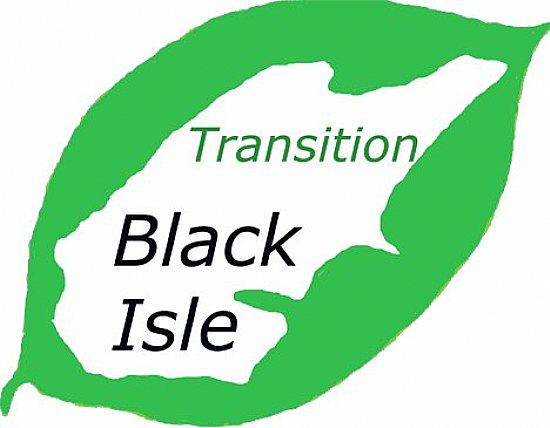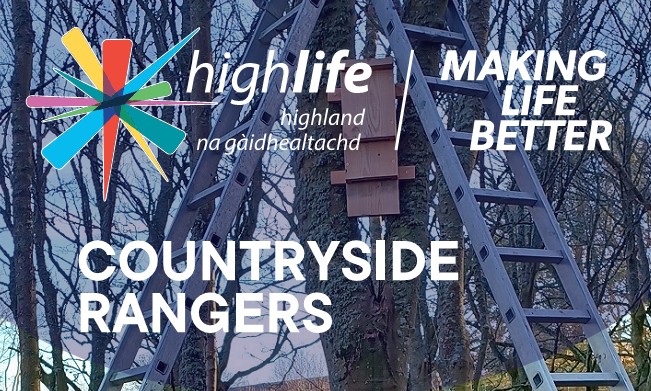Energy from waste - Incineration
[For the Scottish Government 2022 review into 'the role of incineration in the waste hierarchy in Scotland', see Environment / Recycling and waste / Incinerating waste.]
February 2022
Highland Council proposals, Scottish Government consultation and TBI and other responses
In response to the prospect of legislation banning landfilling of biodegradable waste from January 2021 (which has now been delayed until 2025), in August 2018 Highland Council agreed the former council tip at the Longman as the site for a 'Materials Recovery Facility', which would process non-recyclable waste into fuel for energy-generating incineration elsewhere, and to consider the possibility of an incinerator being built on site in the future.
Planning permission for the Facility was granted in June 2019, but there was disagreement over a councillor's claim that the public had not been made aware of the likelihood that an incinerator would subsequently be built on the site.
In September 2021 the Council agreed to spend £2.8 million on a scoping exercise for the creation of an 'energy from waste plant' (ie incinerator) in the Longman.
At the same time, in accordance with a commitment in the SNP/Green Party Shared Policy Programme agreed in August 2021,the Scottish Government commissioned a review into 'the role of incineration in the waste hierarchy in Scotland, to ensure that how residual waste is managed in Scotland aligns with Scotland’s carbon reduction ambitions'.
Scottish Green Party Green Skills and Circular Environment Minister Lorna Slater confirmed the review in Parliament on 29 September, and later announced that applications for new waste incineration plants would be called in to the Scottish Government for the duration of the review. The review is led by Dr Colin Church, formerly CEO of CIWM, the professional body for resource and waste management and Director of Environmental Quality at Defra, and began work in October 2021.
Consultation in the form of a 'call for evidence' took place from 21 December to 22 February, and Convenor Julian Paren submitted a response on behalf of TBI, in which he emphasised that incineration of waste could only be justified if it could be shown to 'produce a net gain in energy without deleterious side effects and be at an acceptable cost, . . . compared with the costs and benefits of landfill operations, and the cost of generating the energy that would have been delivered through incineration, by other renewable means'. He also called for the collection and composting of food waste in the rural Highlands, and for much more emphasis to be placed on reducing the amount of waste produced in the first place.
Strong opposition to incineration has come from The United Kingdom Without Incineration Network (UKWIN), a network of anti-incineration campaigners founded in 2007, and Friends of the Earth Scotland, endorsed by FoE Inverness and Ross. Both organisations think we have more than enough incineration capacity if everything already consented is built, so an extra facility like that proposed for the Longman will not be necessary. In addition, the UKWIN submission advocates a procedure known as MRBT (Materials Recovery and Biological Treatment) as the best option for any new ‘transitional’ residual waste treatment capacity built in Scotland.
UKWIN review response FoES response TBI response PDF
MRBT links from Zero Waste Europe
overview and animation detailed policy briefing
 Scottish Government
Scottish GovernmentRole of incineration
in the waste hierarchy - review
Call for Evidence
A response from Transition Black Isle
Summary
To maintain or expand incineration facilities in Scotland, incineration must be shown to be safer than and more cost effective in energy generation than committing the waste to landfill. The financing of all waste processing must be examined on the basis that future life choices to meet Net Zero will result in less waste and less overall energy requirements.
Cost-effective energy from Incineration
Transition Black Isle recognises that one approach to reduce fossil fuel use is to maximise the energy embedded in waste. The whole operation of collecting. transporting, and processing the waste and then capturing the energy must produce a net gain in energy without deleterious side effects and be at an acceptable cost. Acceptable cost when compared with the costs and benefits of landfill operations, and the cost of generating the energy that would have been delivered through incineration by other renewable means.
Reducing waste should be the foundation for future incinerator planning
Before embarking on a major financial appraisal of incineration at a time when Net Zero targets will become ever harder to meet, it is important to engage vigorously with producers and consumers to reduce the amount of waste they create. The domestic, agricultural and construction sectors of the economy are particularly relevant. The financial assessment of any incinerator project (capital and long-term recurrent costs) should not be calculated assuming that there will be constant or increasing waste feed over the years. Rather, the scale of incinerator projects should be assessed in the light of optimistic responses to reduce future waste.
Food waste needs tackling in rural communities in the Highlands
Transition Black Isle is rooted in the Highlands where food waste is sent to landfill while in the City of Inverness such waste is composted. The Highland Good Food Partnership is trying to get the Highland Council to fund community-scale food waste composting, which in other parts of Scotland has resulted in a reduction in food waste by a third. Currently there is a rural exemption from the general requirement for local authorities to collect food waste separately. As a result, Inverness is the only part of the Highlands where food waste is collected; in all other parts of the Highlands it is treated as residual waste, and would be part of the feedstock for the proposed incinerator in Inverness. Transition Black Isle suggests that Highland Council delivers pilot programmes for waste reduction targets in various Highland Communities.
Consult very widely and keep the public informed
As the review gets underway, Transition Black Isle requests the widest possible involvement of academics and companies with expertise in energy from landfill, experts in public engagement, experts in public health (as incinerators produce toxic particles and aerosols), experts in energy transfer, and experts in commercial scale composting. The whole appraisal should be collaborative and wide-ranging. The public will wish to be updated regularly on the developments and public consultations should continue.
Julian Paren, Convenor
For Transition Black Isle 21 February 2022
Transition Black Isle
Registered Scottish Charity SC042309
Company limited by guarantee, registered in Scotland 398650
Registered office
Glachbeg, Allanglachwood, North Kessock, IV1 3XD
www.transitionblackisle.org
Please reply to info@transitionblackisle.org
Latest News...
 Highlife Highland Countryside Rangers annual report published
High Life Highland (HLH) Countryside Rangers have a central partnership with the Highland Council (HC) to deli... More >>
Highlife Highland Countryside Rangers annual report published
High Life Highland (HLH) Countryside Rangers have a central partnership with the Highland Council (HC) to deli... More >> Prize win for Highland Wildflower Meadow Mosaic
High Life Highland Rangers, working in partnership with the Forum – and with all the volunteers who help... More >>
Prize win for Highland Wildflower Meadow Mosaic
High Life Highland Rangers, working in partnership with the Forum – and with all the volunteers who help... More >>Forthcoming Events…
- Friday 17 January
- NA Resolis Community Arts - Managing Rhinos in Africa
- Friday 7 February
- NA Transition Assembly England and Wales 2025
- Tuesday 11 March
- NA Highland Climate Conference Knigsmills Hotel Inverness
Events to add to calendar? Contact Us.
TBI Business Directory
Add Your Business
Do you run a sustainable business on or near the Black Isle? Add it to the TBI business directory
Browse Directory
- Accommodation (3)
- Crafts (9)
- Health and fitness (8)
- Home improvements (17)
- Local food suppliers (18)
- Miscellaneous (35)
- Renewable energy (18)


